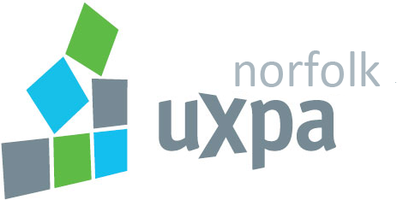Here are some snippets of an interesting article re: why some people thought they were good in sales during an interview.
When the sales applicant was asked, “Why do you think you’d be good in sales?” he/she replied:
“Because I like to talk.”
“Because I like people.”
One of my favorites is when one applicant said they'd be a good real estate salesperson was because they liked to look in people’s homes.
Their answers aren't wrong, but they never got that second interview. In sales, we know how to interview because every sales call we make is an interview. How we do determines if we’re invited back or not.
When former President Bill Clinton was asked in an interview why he thought his wife would be a good president, he had a reply salespeople should give: “She listens to the problem, she comes up with a plan – and then she delivers.”
How many business owners and sales managers wish they had a team of salespeople who would do the same? Listen. Identify the problem. Develop a plan. Deliver.
A sales manager said when he runs an ad for a new salesperson, he gives the candidates a number to call for an appointment. When applicants call they hear this message. “Thanks for calling. After hearing the rest of this message, I want you to hang up, get yourself together, and then call back and leave me a 30-second message of why I should invite you in for an interview.”
That sales manager eliminated countless salespeople wannabe’s while stocking his sales staff with excellent salespeople who know what sales is about.

In interviewing for a new salesperson, throw out a real problem every company has and listen to the response. “We need new customers. What’s your plan for finding them?” The second interview rides on the response.
If a sales manager asked me why I’d be a good salesperson for the company and why I should be invited back for a second interview, I’d reply something like this:
“You need to find new customers. I have a referral plan that I’ve worked for years with tremendous success. And, I developed a cold-calling schedule to find new leads and get in front of decision-makers. Here’s my proven plan to position myself to be the next salesperson my propsects call when they're ready to change vendors, i.e. to stay top-of-mind (insert here). I always say, if you can't be #1, then be #2. And, here are several creative techniques I’ve developed in solving problems for my past customers (insert here)."
But, the bottom line response from every salesperson should be, NOT that they like to talk, like people or like to look in other people's houses, but:
I like to help people discover their problems, learn about them, develop a plan to provide solutions and then deliver results. For them and for my company, today and in the future. Win-win. Period.
When the sales applicant was asked, “Why do you think you’d be good in sales?” he/she replied:
“Because I like to talk.”
“Because I like people.”
One of my favorites is when one applicant said they'd be a good real estate salesperson was because they liked to look in people’s homes.
Their answers aren't wrong, but they never got that second interview. In sales, we know how to interview because every sales call we make is an interview. How we do determines if we’re invited back or not.
When former President Bill Clinton was asked in an interview why he thought his wife would be a good president, he had a reply salespeople should give: “She listens to the problem, she comes up with a plan – and then she delivers.”
How many business owners and sales managers wish they had a team of salespeople who would do the same? Listen. Identify the problem. Develop a plan. Deliver.
A sales manager said when he runs an ad for a new salesperson, he gives the candidates a number to call for an appointment. When applicants call they hear this message. “Thanks for calling. After hearing the rest of this message, I want you to hang up, get yourself together, and then call back and leave me a 30-second message of why I should invite you in for an interview.”
That sales manager eliminated countless salespeople wannabe’s while stocking his sales staff with excellent salespeople who know what sales is about.

In interviewing for a new salesperson, throw out a real problem every company has and listen to the response. “We need new customers. What’s your plan for finding them?” The second interview rides on the response.
If a sales manager asked me why I’d be a good salesperson for the company and why I should be invited back for a second interview, I’d reply something like this:
“You need to find new customers. I have a referral plan that I’ve worked for years with tremendous success. And, I developed a cold-calling schedule to find new leads and get in front of decision-makers. Here’s my proven plan to position myself to be the next salesperson my propsects call when they're ready to change vendors, i.e. to stay top-of-mind (insert here). I always say, if you can't be #1, then be #2. And, here are several creative techniques I’ve developed in solving problems for my past customers (insert here)."
But, the bottom line response from every salesperson should be, NOT that they like to talk, like people or like to look in other people's houses, but:
I like to help people discover their problems, learn about them, develop a plan to provide solutions and then deliver results. For them and for my company, today and in the future. Win-win. Period.























No comments:
Post a Comment